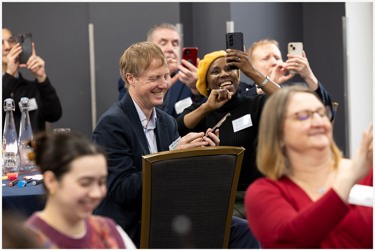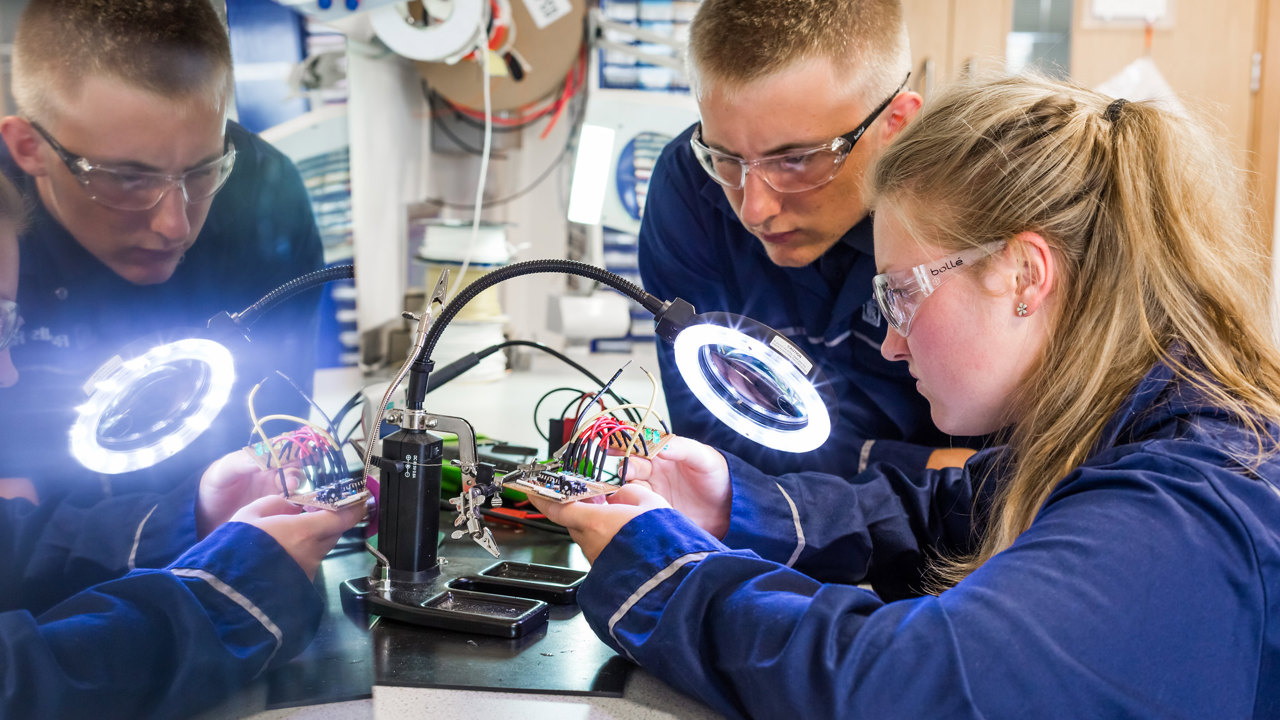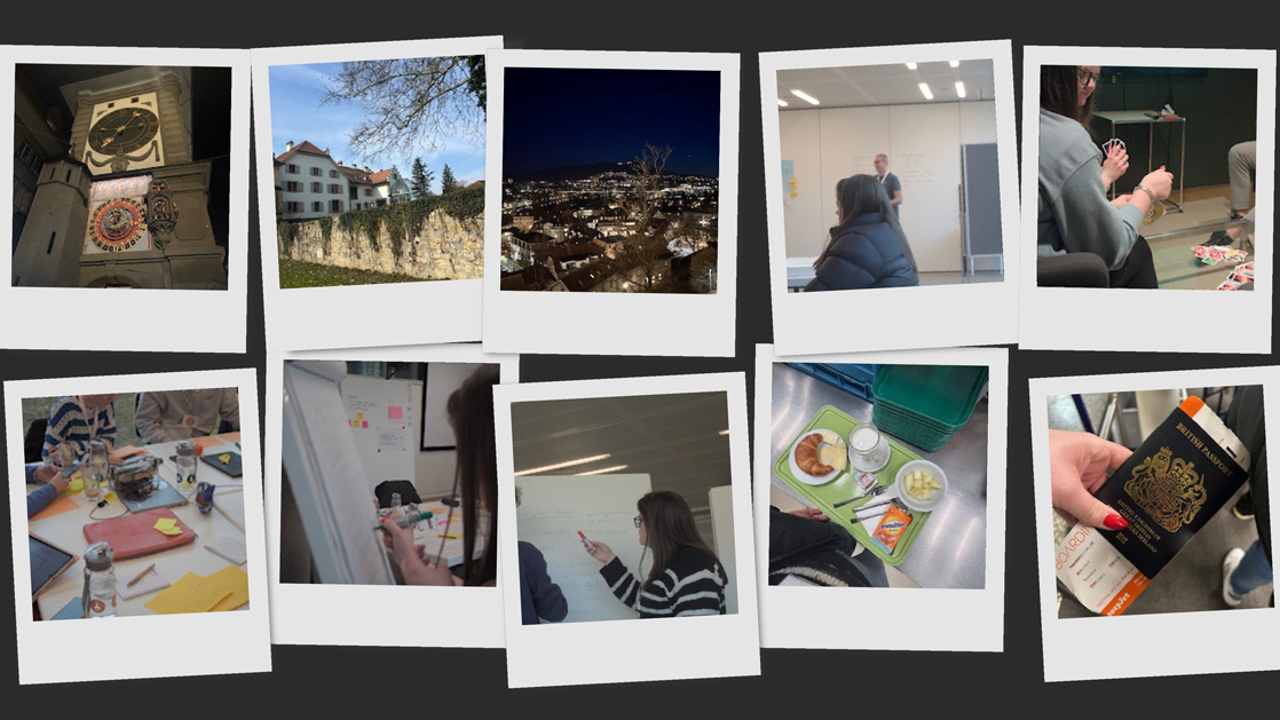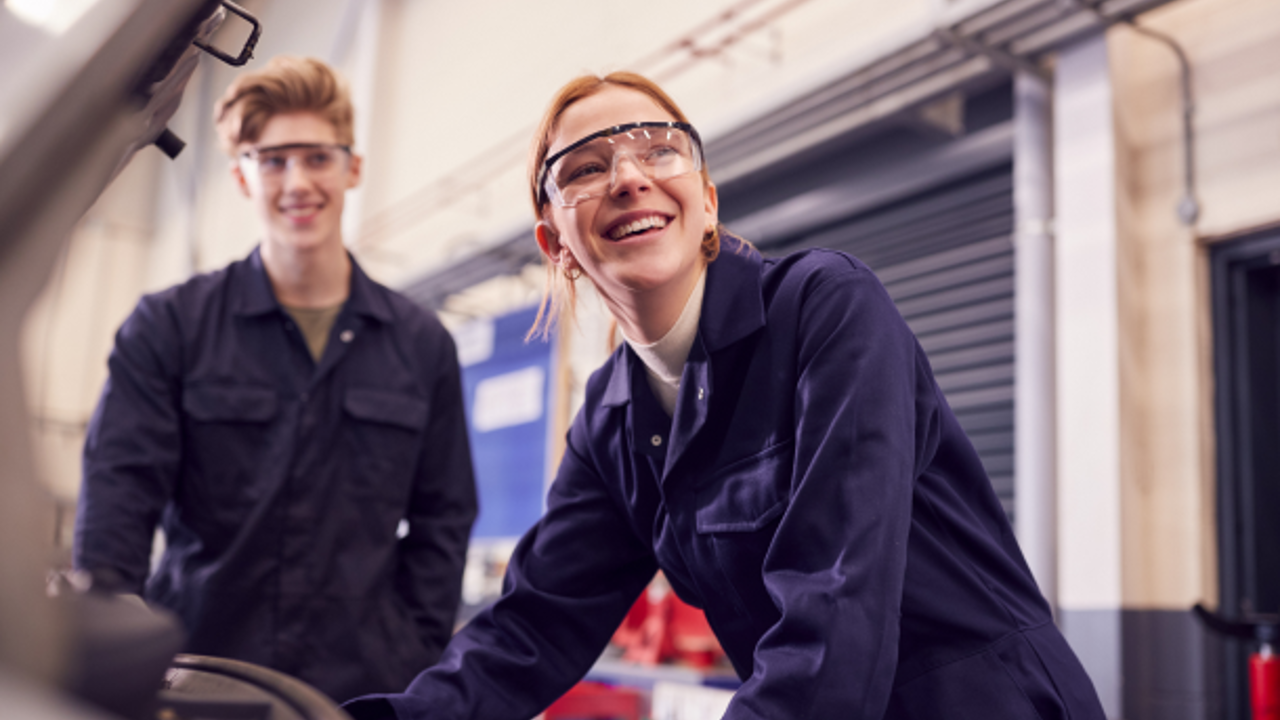The annual conference for STEM outreach professionals
By Nicholas Rowe, Project Support Officer, EngineeringUK
Nick joined more than 120 delegates for this year's conference. He works very closely with Code community members, and connected with STEM outreach professionals throughout the event. Here, he writes about the speakers who presented on the day, all passionate about inspiring young people into careers in engineering and technology.

From the start, it was clear this year's Tomorrow's Engineers Live was going to be packed with important, weighty discussions and eye-opening insights.
Dr Janet Young CBE, Director General and Secretary, Institution of Civil Engineers set the tone: the net zero economy is growing 3 times faster than any other, yet more people are leaving engineering than joining. She urged every organisation to sign up to The Tomorrow’s Engineers Code, to help make sure young people see engineering as a career that matters (because it does!)
The keynote speech came from Rebecca Shipley, Professor of Healthcare Engineering/Chief Research Officer at UCL/UCL Partners. She talked about Inspiring young people through healthcare engineering. She told the audience how innovation was crucial in the Covid-19 response. In just 100 hours, her team, working with Mercedes F1, reverse-engineered and produced CPAP machines saving thousands of lives. Within a month, they had 10,000 units in hospitals. More than a lesson in engineering ingenuity, the project was a testament to collaboration and rapid problem-solving, powered by purpose.
Her thoughts on young people’s awareness of engineering came from her own experience: in girls’ grammar schools few students took maths and physics.
The disconnect between healthcare and engineering in careers education is a missed opportunity – and one, she believes, we must fix. Engineering in action solves real world problems.
The 5 lightning talks brought thought-provoking insights on AI, STEM education, engaging young people, careers and skills.
Dan Scott from WSP highlighted AI’s rapid workplace evolution, revealing that AI has had more Google searches than Taylor Swift! While 70% of workers say AI has already impacted their jobs, 41% want more support in using it.
Becca Gooch, Head of Research at EngineeringUK, shared concerning stats from the Science Education Tracker: interest in classroom science has dropped since 2019, particularly among girls. However, practical science can reignite curiosity, a theme echoed by Laura Hawskworth, from the Careers and Enterprise Company, who revealed that career readiness doubles girls’ interest in engineering. Professor Becky Parker MBE (a physics teacher, as well as Director of Project Earth) reinforced this with real-world examples, showing how hands-on STEM projects can be transformational for students.
The need for systemic change was a key takeaway from speakers Professor Lynne Bianchi, Founder and Director of the Science & Engineering Education, Research and Innovation at the University of Manchester, and Kate Dodgson (Secondary Lead for the University of Manchester's Engineering Educates Robotics Challenge). A fresh approach is needed, one that integrates asking, imagining, and creating.
It was interesting to hear Sarah Maclean, Joint CEO of Skills England, kick off the afternoon. Sarah reinforced the importance of national, regional, and local perspectives in filling skills gaps and ensuring a robust talent pipeline. Their open approach to collaboration with industry and policymakers is an opportunity not to be missed.
Feedback from previous events showed delegates want more interaction. This year there were 3 hands-on workshops.
- The Participation People session focused on communicating with Gen Z. With just 1.7 seconds to grab their attention in a sea of 4,000 daily digital ads, we need to rethink our approach. TikTok is their research tool, influencers hold weight, and social media is their primary information source. If we want to inspire the next generation of engineers, we must meet them where they are.
- Partnership was a recurring theme, particularly in the Stronger Together session, led by EngineeringUK and Imperial. The message was clear: stop thinking about what your organisation can gain, think about the problem that needs solving. Funding, expertise, and delivery must be aligned. The challenge is too big for silo working.
- The Megawatt session used Bloom’s Taxonomy of Learning to bring the room together. It highlighted how active participation boosts engagement and retention, especially for underrepresented groups.
2025 saw the introduction of an 'unconference' hour. These discussions solidified thinking that employers, educators, and policymakers must work together.
See the Tomorrow's Engineers Live 2025 full programme.
What next?
Tomorrow's Engineers Live left no doubt that change is in our hands. Yes the skills pipeline is at risk, engineering needs diversity, and the way we talk about careers must evolve. But the event was a day about finding solutions. We need to collaborate more is my key takeaway.
Join The Tomorrow's Engineers Code if you're looking to do the same!
Conversations will continue in The Code LinkedIn group, exclusively for members of The Code.
Thanks
With thanks to all our fabulous speakers who gave their time and energy to make the conference such a huge success:
- Aimee Smith, Social Impact Manager, Thales
- Antonia Dixey, Chief Executive Officer and Founder, Participation People
- Azisa and Chloe, Young Consultants, Participation People
- Becca Gooch, Head of Research, EngineeringUK
- Professor Becky Parker MBE, Director, Project Earth; physics teacher and Visiting Professor, School of Physics and Astronomy, Queen Mary, University of London
- Clare Collins-Addy, Director of Partnerships, Causeway Education
- Dan Hefferman, Strategic Social Value Lead, AtkinsRéalis
- Dan Scott, Chief Data Scientist, WSP
- Fay Block, Curriculum Manager for Engineering, Construction and the Built Environment at City of Westminster College, United Colleges Group
- Francisca Chiedu Otu, Engineering Initiative Lead, National Grid
- Dr Hilary Leevers, Chief Executive, EngineeringUK
- Ian Evans, Assistant Principal – Engineering, Construction and the Built Environment, United Colleges Group
- James Mackay, Social Outreach Impact Manager, Thales
- Dr Janet Young CBE, Director General and Secretary, Institution of Civil Engineers
- Kate Dodgson, Specialist Secondary School Teacher and the secondary lead for The University of Manchester's Engineering Educates Robotics Challenge
- Laura Hawksworth, Head of Policy and Impact, Careers and Enterprise Company
- Professor Lynne Bianchi, Vice Dean for Social Responsibility, Equality, Diversity, Inclusion & Accessibility; Founder and Director of the Science & Engineering Education Research and Innovation, University of Manchester
- Maddie Dinwoodie, Director of Engagement Programmes, EngineeringUK
- Mick Westman, Founder and CEO, Digital Innov8ors
- Miguel Trenkel-Lopez Founder and Creative Director, Megawatt
- Phil Ramsden, Academic Lead, mA*ths and further mA*ths, Imperial
- Rebecca Hale, Programme Content Manager, EngineeringUK
- Professor Rebecca Shipley, Professor of Healthcare Engineering/Chief Research Officer at UCL/UCL Partners
- Sarah Maclean, joint CEO, Skills England




